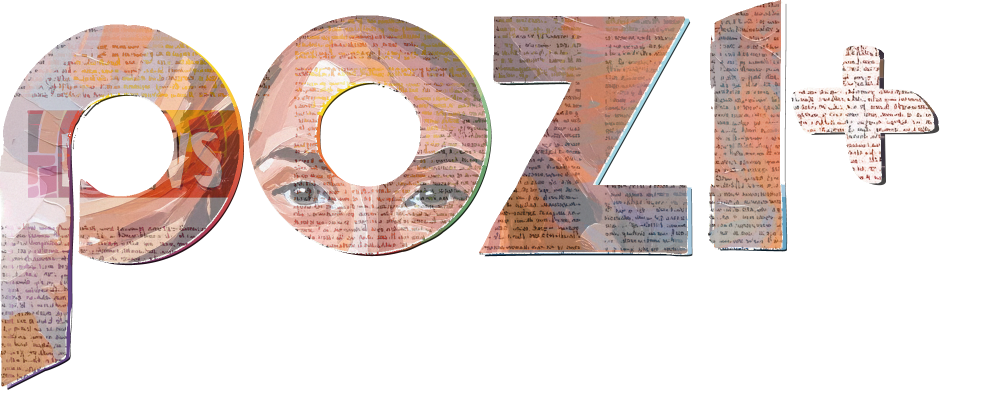Celebrating Neurodivergent History with Shame, Eugenics, and Systematically Demanding “Soul-Crushing” Conformity
Throughout human history, the most profound leaps in artistic expression, scientific understanding, and technological innovation have frequently been catalyzed by minds operating outside the confines of conventional thought. From the intricate artistry of Michelangelo’s frescoes to the codebreaking brilliance of Alan Turing, many transformative figures displayed characteristics now understood to be associated with autism spectrum disorder (ASD). Yet, contemporary society finds itself entangled in a profound paradox: we readily celebrate the historical achievements of these neurodivergent luminaries while simultaneously perpetuating systems that systematically marginalize their living counterparts. This cognitive dissonance is not merely a matter of societal hypocrisy; it represents an active impoverishment of our collective future, a squandering of intellectual capital at a moment when it is most urgently needed.
This societal pressure to conform, to fit into a neurotypical mold, finds a striking, albeit darkly humorous, resonance in a popular internet meme within the autistic and broader neurodivergent community. Often featuring a visibly distressed or contorted figure, the meme expresses a yearning to “crush my soul back into my body.” This seemingly violent imagery speaks to a profound and often misunderstood need: a desire for intense, deep pressure, akin to a very tight hug or the weight of a heavy blanket, to help manage feelings of being overwhelmed, scattered, or profoundly disconnected from oneself. For neurodivergent individuals navigating a world largely designed by and for neurotypical minds, this meme serves as a potent analogy for the daily experience of masking, suppressing natural behaviors, and forcing themselves to adhere to expectations that feel fundamentally alien – a constant, exhausting attempt to compress their expansive and unique selves into a restrictive and ill-fitting container.
The Untapped Neurodivergent Engine of Progress: A Soul Yearning for Grounding
Emerging research is increasingly illuminating the intrinsic link between neurodivergence and the very traits that drive human advancement. A seminal 2015 study published in Molecular Psychiatry revealed significant genetic overlaps between variants associated with ASD and measures of cognitive ability and educational attainment. This scientific finding resonates with historical observations. Scrutiny of Albert Einstein’s personal correspondence reveals social difficulties and an intense, singular focus – traits now commonly associated with ASD. Similarly, Nikola Tesla’s detailed autobiographical accounts describe sensory hypersensitivities and obsessive working patterns, characteristics now readily recognized as falling within the neurodivergent spectrum. For individuals who sometimes experience a disorienting sense of being “disembodied” or disconnected, a feeling that their “soul has floated away,” the intense focus and sensory sensitivities observed in these historical figures might also have been accompanied by a deep, perhaps unconscious, yearning for a grounding force, a metaphorical “crushing” pressure to bring them back to themselves. The contemporary business world is also beginning to acknowledge this connection. Forward-thinking technology giants such as SAP and Microsoft have actively initiated recruitment programs targeting autistic individuals, recognizing their exceptional pattern recognition skills and reporting remarkable gains in productivity metrics, sometimes exceeding 90% in specific tasks. These companies are, in essence, recognizing the inherent value that emerges when individuals are not forced through the soul-crushing act of neurotypical conformity, allowing their unique cognitive architectures to thrive.
Echoes of Eugenics: Filtering the Future and Denying Embodiment
Despite this growing body of evidence highlighting the potential and realized contributions of neurodivergent individuals, global healthcare systems continue to allocate substantial resources towards prenatal testing programs with the explicit aim of eliminating autism. The near-100% termination rate for Down syndrome pregnancies in Iceland serves as a chilling precedent, raising serious ethical questions about the potential trajectory should reliable ASD biomarkers become widely available. Such efforts fundamentally disregard crucial research demonstrating that the very genes linked to autism are also often correlated with enhanced visual processing, exceptional mathematical aptitude, and innovative problem-solving capabilities. For individuals who may experience the world in a more intense and sometimes overwhelming way, the idea of eliminating the very traits that also underpin their unique strengths is akin to denying them the potential for deep connection and regulation that even the “soul crushing” meme hints at. The ethical implications are stark: under the guise of medical progress, we risk systematically filtering out future Nobel laureates, groundbreaking scientists, and visionary artists – all in a misguided attempt to avoid what is perceived as a deviation from a narrow definition of “normal,” effectively crushing potential before it even has a chance to find its grounding.
Structural Hostilities in Plain Sight: A World That Feels Disembodying
The marginalization of neurodivergent individuals is not confined to prenatal screening; it is deeply embedded within the very fabric of our societal structures. These structures often demand a neurotypical presentation, forcing neurodivergent individuals into the uncomfortable and energy-draining position of constantly trying to “crush their soul back into their body” to navigate daily life, a desperate attempt to feel present and regulated in an environment that often feels inherently disembodying:
- Education Systems Prioritizing Conformity: A staggering 78% of autistic students report being punished for stimming behaviors – repetitive movements or sounds crucial for self-regulation and managing sensory overload. For individuals who may rely on these behaviors to feel grounded and connected to their bodies, this punitive approach prioritizes neurotypical norms over their fundamental needs, essentially telling them that a core aspect of their being is unacceptable and must be suppressed, further exacerbating feelings of disconnection.
- Workplace Barriers: Despite the fact that 92% of autistic adults possess marketable specialized skills, unemployment rates within this population tragically exceed 85%. This represents a monumental waste of talent, driven by inflexible workplace environments and hiring practices that often fail to recognize and accommodate diverse cognitive styles, implicitly demanding a neurotypical mode of interaction and communication that can feel like a constant soul-crushing performance, preventing them from finding the stability and purpose that can contribute to a sense of wholeness.
- Social Isolation and Reduced Lifespan: The life expectancy for autistic individuals is, on average, a shocking 16 years lower than that of their neurotypical peers. This disparity is primarily attributed to suicide and preventable health issues, highlighting the profound impact of social isolation and inadequate support systems – consequences of a society that often struggles to accept and integrate those who don’t naturally fit the neurotypical mold, leading to immense internal pressure, a feeling of being fundamentally “wrong,” and a desperate yearning for the very deep connection and grounding that the “soul crushing” meme represents.
These stark statistics paint a picture of a society that engages in well-meaning rhetoric about inclusion while simultaneously maintaining exclusionary systems that actively impede the progress and well-being of neurodivergent individuals, forcing them into a perpetual state of trying to contort themselves into a shape that doesn’t naturally fit, a constant “crushing of the soul” that leaves them feeling perpetually out of sync with themselves and the world around them.
The Competitive Advantage of Cognitive Diversity: Embracing Different Forms of Embodiment
In contrast to these exclusionary practices, a growing number of cutting-edge organizations are recognizing and leveraging the inherent value of neurodiversity. A compelling 2023 study from MIT demonstrated that teams including autistic members solved complex problems a remarkable 30% faster than purely neurotypical groups. Similarly, Japan’s Dai-ichi Life Insurance reports 50% higher accuracy rates in data analysis tasks performed by their autistic employees. These are not merely acts of corporate social responsibility; they represent strategic advantages in an increasingly complex and data-driven world. By creating environments where neurodivergent individuals can operate authentically, without the pressure to “crush their soul back into their body” by constantly masking and conforming, these organizations are unlocking previously untapped reservoirs of talent and innovation, recognizing that different cognitive styles offer unique pathways to understanding and engaging with the world.
The Path Forward: From Tolerance to Activation – Creating Space for Authentic Being
Moving beyond mere tolerance towards genuine inclusion requires a fundamental systemic overhaul, a dismantling of the structures that demand neurotypical conformity and force individuals into that soul-crushing mold, and instead creating spaces where diverse forms of being and experiencing the world are not only accepted but actively valued:
- Education Reform: We must move away from rigid, behaviorist approaches in education and embrace strength-based curricula that recognize and nurture diverse neurodivergent learning styles, allowing students to thrive as their authentic selves and fostering an environment where their unique ways of engaging with the world are seen as assets.
- Workplace Redesign: Implementing sensory-friendly work environments and adopting task-based performance metrics, rather than relying on subjective social evaluations, will unlock the untapped potential of neurodivergent professionals by allowing them to contribute their unique skills without the exhausting performance of neurotypicality, creating spaces where they can feel comfortable and grounded in their work.
- Healthcare Transformation: The healthcare paradigm must shift from purely deficit-focused models to comprehensive support frameworks that actively enhance and leverage the unique strengths of autistic individuals, recognizing their inherent value rather than solely focusing on perceived deficits, and understanding that their need for grounding and regulation is a valid and important aspect of their experience.
Crucially, this is not a matter of charity or altruism; it is a matter of strategic imperative for societal progress and even survival. As artificial intelligence increasingly automates routine cognitive tasks, humanity’s competitive edge will lie precisely in the kind of nonlinear, hyper-focused, and detail-oriented thinking that is often characteristic of autistic cognition. To continue demanding neurotypical conformity is to actively suppress the very cognitive diversity that will be essential for navigating the complexities of the future – a self-inflicted “crushing of our collective soul” that prevents us from accessing the full spectrum of human potential.
A Final Call: Nurturing the Minds That Will Shape Our Future – Embracing the Diversity of Human Experience
The next Einstein, the next Turing, the next Michelangelo may not be found in a therapist’s office learning to suppress their innate genius to conform to a narrow definition of “normal.” They are waiting for a society mature enough to recognize, value, and actively harness extraordinary minds without attempting to mold them into something they are not, without forcing them through the agonizing and unproductive process of trying to “crush their soul back into their body” to fit into a world that doesn’t naturally accommodate them. Our choice is clear: we can either evolve our institutions to genuinely nurture neurodiversity, allowing these unique minds to flourish and contribute their invaluable perspectives, or we can continue down a path of self-imposed limitation, devolving into a pale imitation of our collective human potential. The future belongs to those who recognize that cognitive differences are not defects to be eradicated, but rather Darwinian advantages in disguise, waiting to be unleashed when we finally stop trying to force them into a neurotypical box and instead create a world where all forms of human experience are valued and supported.


